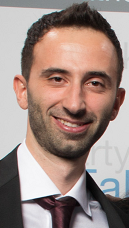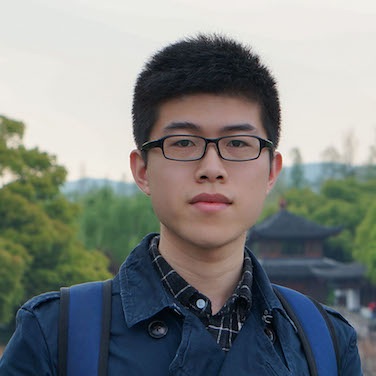D2D Trust Ecosystem
Project Overview
Funding: 2 Years (2017 ~ 2018)
Partners: TUM (Germany) and HKUST (Hong Kong)
 |
 |
Description
The advancement of Device-to-Device (D2D) ecosystems has inspired mobile applications to utilize nearby mobile devices. In D2D ecosystems, mobile users communicate via WiFi-direct, Bluetooth or NFC, move opportunistically and form temporary and delay-tolerant networks without infrastructure. D2D applications can be executed in more than one device and exploit the paradigm of computation offloading. Yet, D2D ecosystems are challenging to deploy due to 1) the incentives required to motivate mobile users to participate; 2) the limited computational resources and battery constraints and 3) the unpredictability of connectivity due to users' movement. In practical scenarios, when mobile users seek help from their neighbors, it requires non-trivial decisions to maximize their utility. Although existing research on energy-efficient mobile computing and mobility modeling have studied the issues (2) and (3), the fundamental issue of user incentives in D2D context and how to implement it in practice are still open problems.
To this end, we will pursue the following research goals in this project: 1. Analyze and characterize the various types of interactions between mobile devices in a D2D ecosystem and justify the need for trust- and reputation-based schemes. 2. Investigate trust- and reputation-based schemes in D2D ecosystems to identify the state-of-the-art and key components. 3. Formulate a theoretic foundation for the system framework that can enable efficient and decentralized D2D neighbor selection mechanisms. 4. Design corresponding algorithms and communication protocols for the proposed framework. 5. Deploy the design on prototype smartphones and wearable devices, and demonstrate the system framework through D2D proximate services such as video compression offloading and collaborative sensing. 6. Evaluate and analyze the framework through simulations and real systems in operational networks to show the performance, and analyze its economic and social impact. 7. Release the system implementation under open-source licenses to promote follow-up research from the community.
Publications
- "Security and Privacy in Device-to-Device (D2D) Communication: A Review" [Bib & PDF]

Michael Haus, Muhammad Waqas, Aaron Yi Ding, Yong Li, Sasu Tarkoma, Jörg Ott, IEEE Communications Surveys & Tutorials, 2017 - "FlopCoin: A Cryptocurrency for Computation Offloading" [Bib & PDF]

Dimitris Chatzopoulos, Mahdieh Ahmadio, Sokol Kosta, Pan Hui, IEEE Transactions on Mobile Computing, 2017 - "Managing IoT at the Edge: The Case for BLE Beacons" [Bib & PDF]

Michael Haus, Aaron Yi Ding, Joerg Ott, ACM MobiCom SmartObjects, 2017 - "Demo: iConfig - What I See is What I Configure" [Bib & PDF]

Michael Haus, Aaron Yi Ding, Pan Hui, Joerg Ott, ACM MobiCom CHANTS, 2017 - "Keep Your Nice Friends Close, but Your Rich Friends Closer - Computation Offloading Using NFC" [Bib & PDF]

Kathleen Sucipto, Dimitris Chatzopoulos, Sokol Kosta, Pan Hui, IEEE INFOCOM, 2017
Project Members
TU Munich
 |
Prof. Dr. Jörg Ott Project Co-Leader Chair of Connected Mobility, TUM Homepage |
 |
Dr. Aaron Yi Ding Project Co-Leader Chair of Connected Mobility, TUM Homepage |
 |
Vittorio Cozzolino PhD Researcher Chair of Connected Mobility, TUM Homepage |
 |
Michael Haus PhD Researcher Chair of Connected Mobility, TUM Homepage |
HKUST
 |
Prof. Pan Hui Project Co-Leader Department of Computer Science and Engineering, HKUST Homepage |
 |
Dimitrios Chatzopoulos PhD Researcher Department of Computer Science and Engineering, HKUST Homepage |
 |
Carlos Bermejo Fernández PhD Researcher Department of Computer Science and Engineering, HKUST Homepage |
 |
Wenxiao ZHANG PhD Researcher Department of Computer Science and Engineering, HKUST Homepage |